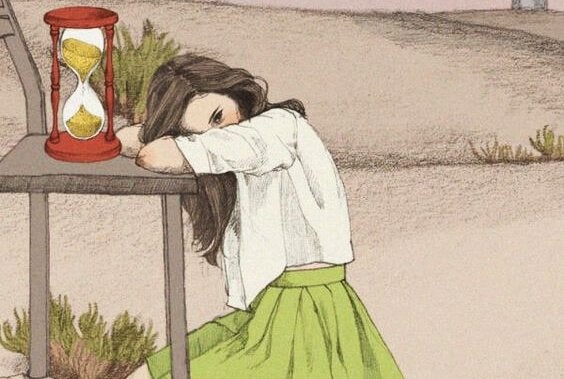Sometimes you can do that, adapt to what doesn’t make you happy, like who puts on a shoe by force thinking it’s his size and gradually discovers that it’s impossible to walk, run, fly?Happiness does not hurt and therefore does not oppress, hurt or suppress the air, but it allows us to be free, light and in control of our own paths.
A few years ago, a certain brand of soap that marketed its product for professional environments launched a special line that was very successful. The phrase “Hapiness is Busyness” was printed on the soap bar itself.
“The world wisely prefers happiness to wisdom. – Will Durant-
If it is true that lines of thought as the concept of?Flow? From Mihaly Csikszentmihalyi emphasize the idea that focusing on a task of body and soul can bring us happiness, in this equation it is necessary to add, without a doubt, the factor that refers to whether or not this task is meaningful to us. In fact, many workers saw the slogan of these soap operas with a sad irony, because not everyone was happy to fulfill a task that, while it could bring financial compensation, did not necessarily bring psychological well-being.
You could say, almost without fear of making mistakes, that a good part of us adapts almost strongly to many of our daily routines, especially being aware that they do not bring us happiness (or using the metaphor of shoes, which make us bubbles It is like riding in a noria that never stops spinning, does life pass nervously and perfectly , inaccessible and laughing, while we remain captive to our routines?
As children, our parents tied our shoes or slippers with double buckles so that they would not come out and do not stumble, wrap us under blankets and blankets with great care, they raised the zippers of our coats and jackets. on top of that we are always warm, cared for and cared for.
We often feel uncomfortable with all this body pressure, but if there was one thing we did it was safety. As we age and take on adult responsibilities, this need to feel safe remains largely. However, this inexplicable desire for continuous search, because safety often does not lead our own behavior to consciousness.
As curious as it may seem, the most sensitive to this need is our own brain. He doesn’t like changes, risks, let alone threats. Is he the one whispering things like “Frame even if he’s not happy, because safety guarantees survival. “However, and this must be clear, adaptation does not always go hand in hand with happiness; reasons, because this adaptation often doesn’t happen.
There are those who continue to maintain the bond of their romantic relationship without true love, without real complicity, not to mention happiness, the important thing for some is to escape loneliness, and for that they do not hesitate to adapt to the size of a heart that is not for yours.
The same is true on a professional level. Many people strive to be docile, easy to manage, and even undermine merits and studies when writing the program because they know it’s the only way to adapt to certain business hierarchies.
It is as if in our minds there is a new motto engraved, like that of the soap factory mentioned at the beginning: “Adapt or die, give up to survive”.
But? Is it really worth dying unhappy?
While our brain resists change and elegantly invites us to stay in our comfort zone, it is genetically designed to face challenges and survive in front of them, in fact, there is a data related to this specifically that invites us to think.
“Happiness is not on the outside, but on the inside, it does not depend on what we have, but on who we are. -Paul Neruda-
A few years ago, researchers Richard Herrnstein and Charles Murray defined a concept called the “Flynn effect. ” It has been observed that, year after year, IQ scores keep increasing. This is due, among other factors, to the fact that modern life today is increasingly full of stimuli: we have more access to information, we interact more and our children are now processing all this data faster and faster, all these stimuli related to new technologies.
But there is one fundamental aspect to which psychologists, psychiatrists, sociologists and anthropologists are very attentive: a high IQ does not always go hand in hand with happiness, it seems that this topic of being happy and having a broader and stronger neurological plot does not always guarantee our psychological well-being. It’s strange and heartbreaking at the same time.
So what’s going on? We adapt to this information society, but at the same time, do we close in our comfort zones as one who sees life go by, imagining false happiness, a goal that expires in an instant and leads us to stress and anxiety?
We forget perhaps that to be happy we have to make decisions, that we have to take off our tight shoes and dare to walk barefoot, we forget that love does not have to hurt, that docility at work ends up burning us and that sometimes we have to do it. we have to challenge those who command us and go out and create our own path. Our own happiness.
How about starting today?
Images courtesy of Ottdim and Hcojiscom.

